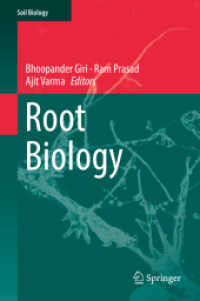- ホーム
- > 洋書
- > 英文書
- > Computer / Languages
Full Description
In this monograph, the author focuses on trace and testing semantics for nondeterministic and probabilistic processes represented by simple probabilistic automata. A trace is a sequence of activities labeling a sequence of transitions performed by a process, thus abstracting from branching points in the process behavior. A test is formalized as a nondeterministic and probabilistic process extended with success states or success actions, which is run in parallel with the process under test thus resulting in an interaction or testing system. Written as a comprehensive review of the topic, the author introduces the reader to the concept of nondeterministic and probabilistic models and how nondeterminism can be resolved. The author then considers probabilistic models, three anomalies of these models and how to overcome them. The author then addresses alternative characterizations of the two probabilistic trace equivalences. Finally, the author considers the anomalies of probabilistic testing equivalence and how to avoid them. This monograph is aimed at researchers working on the formal method aspects of programming languages.
Contents
1. Introduction
2. Nondeterministic and Probabilistic Models
3. An Overview of Resolutions of Nondeterminism
4. Behavioral Equivalences for NPLTS Models
5. Anomalies of Probabilistic Trace Equivalences
6. Anomaly Avoidance via Coherent Resolutions
7. Alternative Characterizations of Trace Semantics
8. Anomalies of Probabilistic Testing Equivalence
9. Anomaly Avoidance via Transition Decorations
10. Conclusions
References








